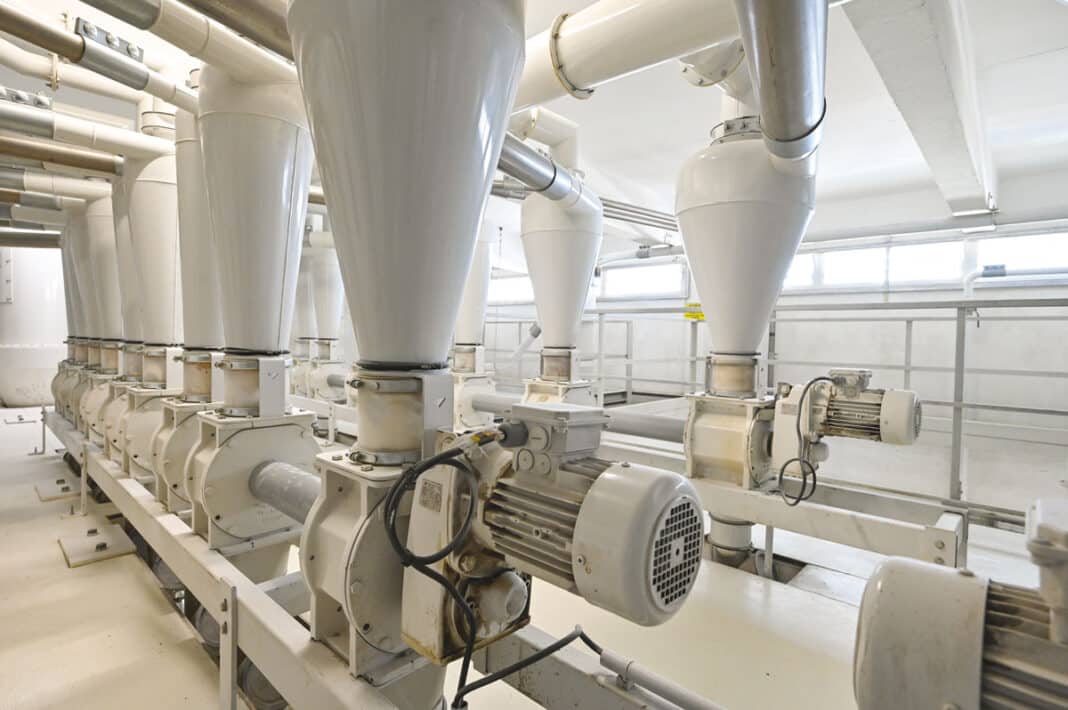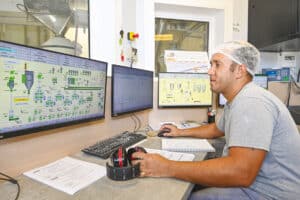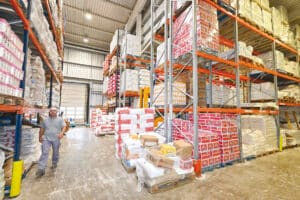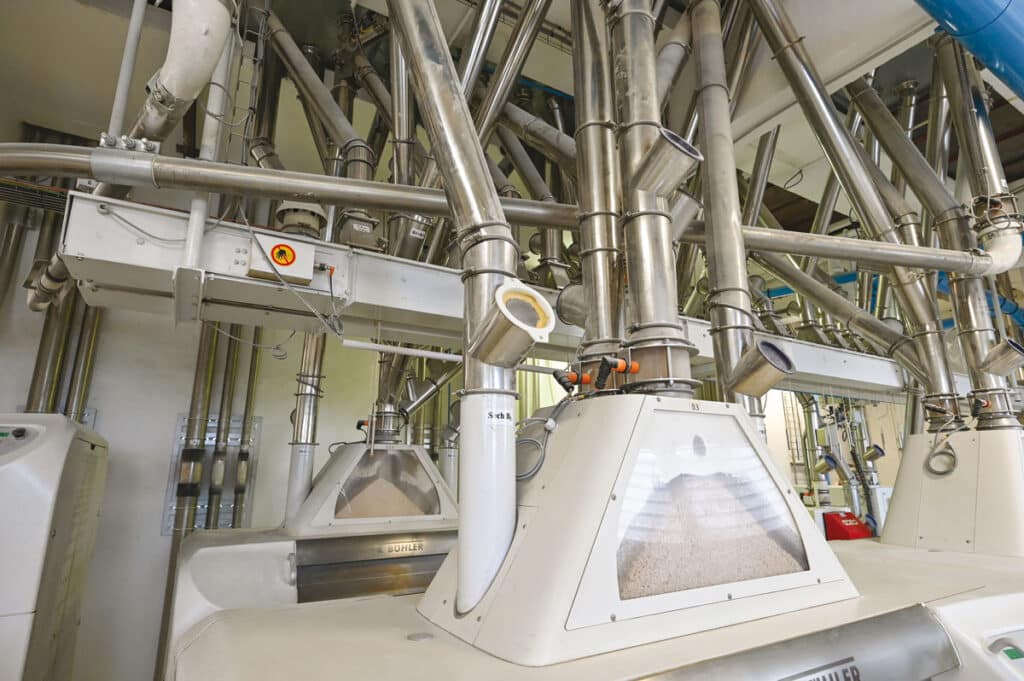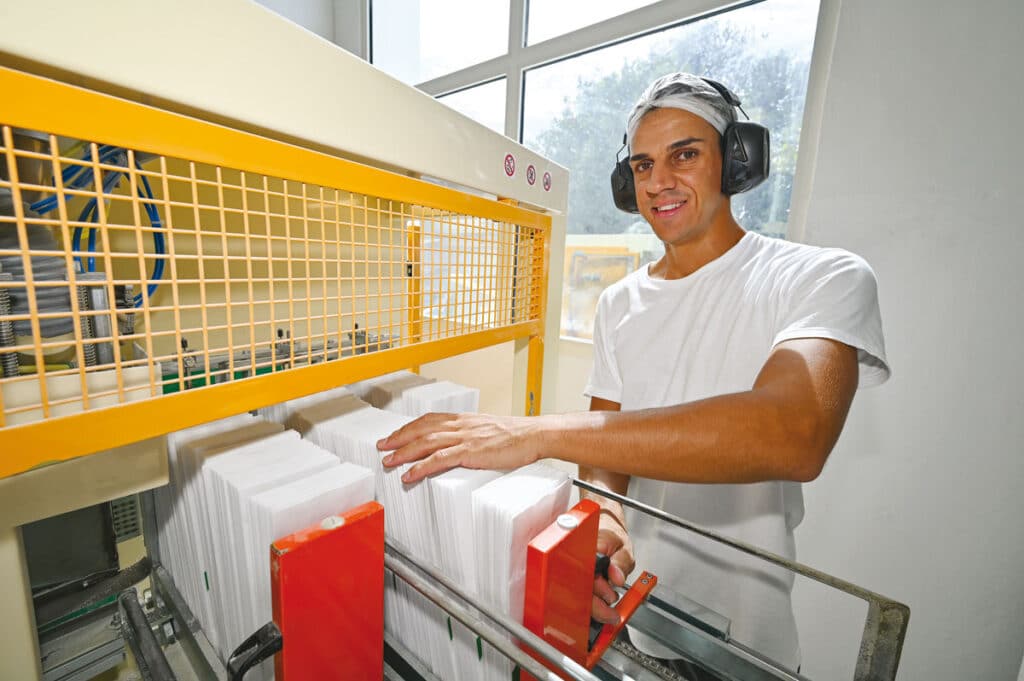Flagships of the Reunion agri-food industry proud to display the Nou la fé stamp on their products, Meunier de Bourbon certainly has one of the most impressive industrial processes. This pei know-how is however still unknown to a large part of consumers. The company’s fiftieth anniversary, This year, is an opportunity to correct this anomaly.
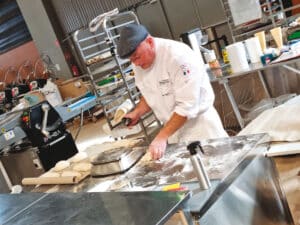
An IPSOS survey revealed last year that only 39% of Reunion consumers knew that there was a flour producing mill in Reunion. ! Fact, the Meunier de Bourbon brand does not land directly on the tables… The flour mill of the General Food Company of La Réunion (Cogedal) was founded in 1973. Fifty years later, under the Meunier de Bourbon brand, the Reunionese company contributed to diversifying and enriching Reunionese gastronomy by developing the culture of bread, pastries and all other flour-based preparations (pizzas, ice cream cones, caps, samosas, etc.). If the wheat is imported 100% from mainland France, It is indeed professionals and local know-how who today produce a large part of the flour consumed in Reunion Island.. Meunier de Bourbon employs 42 employees, including five millers and six multi-purpose operators who take turns day and night, six days a week, to keep the impressive machinery running continuously.
A local market leader
Among bakery and pastry professionals, Meunier de Bourbon is a reference. Out of 300 bakeries and bakeries-pastry shops, 150 chose Meunier de Bourbon as their supplier, i.e. half of the sector. Meunier de Bourbon also supplies industrial bakeries and the catering sector, and exports to Mayotte. Bourbon miller, it is also the name of a range of seven different flours distributed in one-kilo bags in supermarkets. In total, between pure manufacturing and trading, the company markets nearly 150 references. But if Meunier de Bourbon is appreciated by baking professionals, it is also for its daily support by technical sales representatives. Twice a year, the brand also allows its professional clients to benefit from the experience of Meilleurs Ouvriers de France, which it brings from mainland France to lead well-attended master classes.. The next, in July, focuses on the second life of products, or how to avoid wasting scraps and scraps of dough by recovering them to make other baked goods.
Cogedal IFS certified
Flour milling is a discreet industry by necessity. Unlike the sugar industry, it is difficult to lend itself to industrial tourism. If he happens to welcome visitors, it is not open to public guided tours. The discovery of the tool and the industrial process to produce flour would, however, surprise more than one person., but the absolute imperative of food security takes precedence above all else. The company has just received international IFS Food certification.
A mill in the wind of technology
Relatively modest in terms of production (24,000 tonnes of flour produced in 2022), the Reunion flour mill, which completely renewed its industrial equipment in 2014 and has since continued to modernize, has nothing to envy of the best flour mills in mainland France.

Visiting Meunier de Bourbon’s “mill”, under the leadership of the Reunionese miller Geoffray Payet, reserves many surprises. The industrial tool deployed over several floors, it starts with the most accessible step, the last, the one where the special flour mixtures are prepared : the two pastry and bakery workshops. Meunier de Bourbon regularly offers new products developed by its research and development department. Between classic and special flours, to which are added the ingredients for bread making and pastry, more than a hundred references are available, flours packaged in 25 and 10 kg bags and in one kilo bags for supermarkets.
Cleaning, a key step
Meunier de Bourbon shares grain storage silos at the Port. Wheat is delivered daily by truck. To start, the wheat is transported to the top floor by a pneumatic system and then cleaned. The surprise comes from the use of the laws of gravity in the different stages of the process. Cleaning separates the raw wheat from the remaining husks, grains of corn and stones mixed with it, using the dual action of mechanical sieving and separation by gravitational effect. The cleaned wheat is moistened by the “wetting screw” which mixes the water with the wheat.. Follows the stage of resting cells : from twelve hours for standard wheat to twenty-four hours for wheat intended for specialty flours. “Moisture makes crushing easier”, explains Geoffrey Payet.
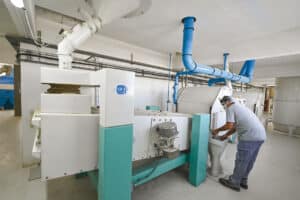
The crush, “the heart of the business”
“Once the rest time has elapsed, the wheat is redirected to the grinding part. The wheat is ground by roller devices according to the necessary settings to obtain the desired flour. After grinding, the wheat goes up to the top floor to separate the air from the wheat using a machine called cyclones” continues Geoffray Payet. The separation of the products is then carried out in a machine called 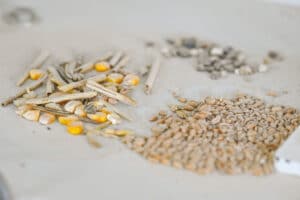
Analysis of wheat and flour
The Quality and Research and Development departments support the manufacturing process with a battery of analyzes and tests. We analyze a sample of wheat ordered exclusively in mainland France. Then the composition of the wheat, its richness in protein in particular, for recipe formulations. Building on these 50 years on the territory, the mill has been able to refine over time the specifications of its selection of wheat so that they best meet the constraints of our climate and the expectations of different users. The flours are analyzed before and after their bagging. We study the mechanical behavior of flour pastes. An internal bakery then carries out the bread-making tests. It is only after passing all these exams that a new flour is released to satisfy our appetite and our sweet tooth..
THE PAPER BAGS THAT SAY IT ALL
Meunier de Bourbon has found an original way to make itself better known to consumers : the brand new kraft bags for customers of artisan bakers and baguette bags.. And to find out more, a QR code gives access to a film on flour manufacturing. These new kraft bags are made locally.


